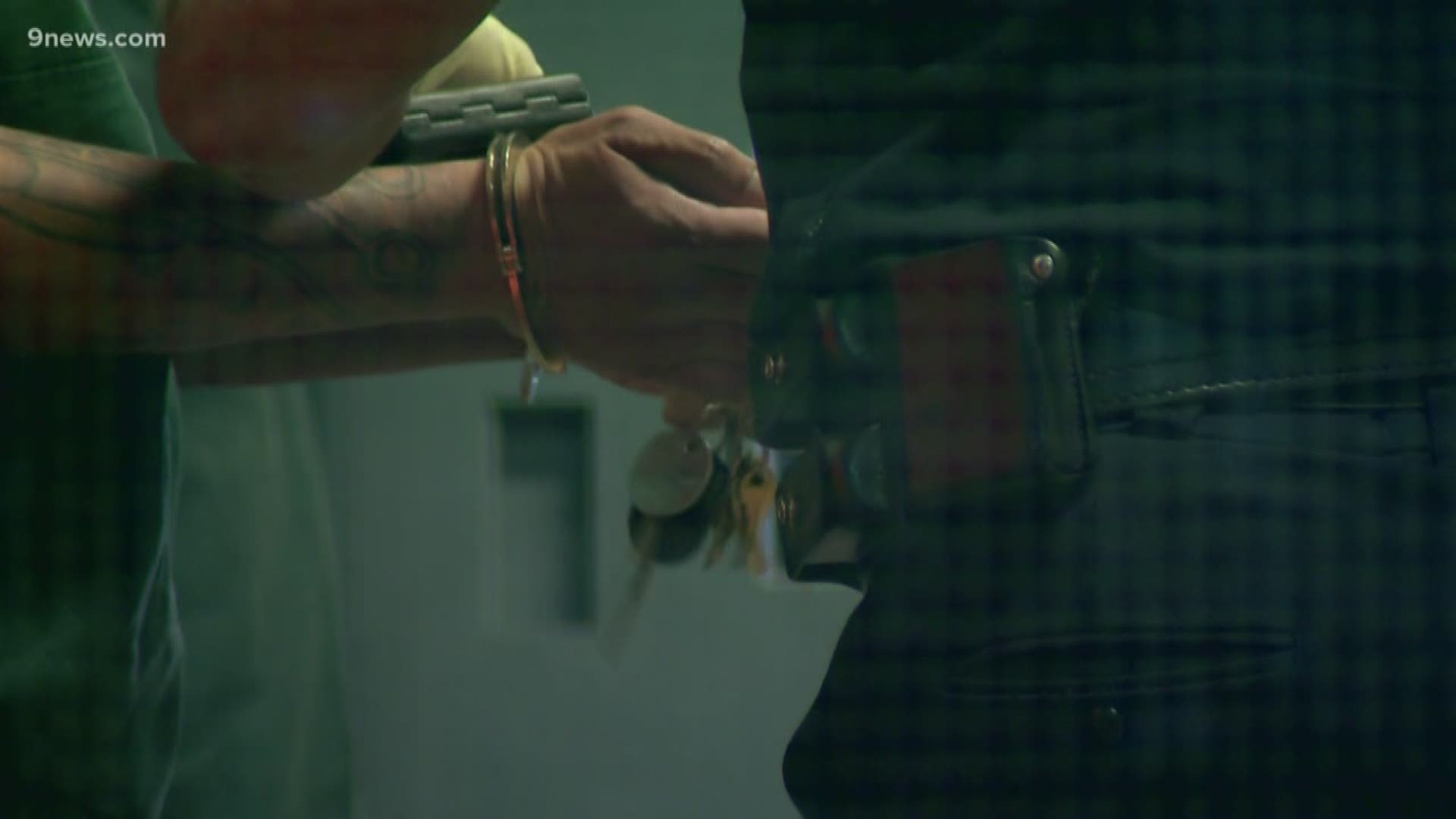GREELEY, Colo. — Greeley Police Chief Mark Jones certainly isn’t hiding the fact that he thinks the state’s prison and parole system need fixing. He stood in front of a camera last month and delivered a message of concern to the people of Greeley on Facebook.
Jones told his Facebook viewers about a gang member who committed second-degree murder in 1997 and was recently granted discretionary parole, meaning he gets to leave prison before his sentence is up.
“While he was in prison he violently stabbed another inmate and yet he’s still being released even though his mandatory release date wasn’t supposed to be until April of 2043,” Jones said.
Gov. Jared Polis (D-Colorado) has made it clear that he wants to reduce overcrowding, signing several criminal justice reform bills into law last month including one that increases the number of inmates that can be considered for parole when vacancy rates hit 3%. Prison vacancy rates have remained under 2% since November 2017.
The parole board has released more people to parole in each of the last three months than it has in any of the previous 20 months the Department of Corrections provided data for.
That’s encouraging to State Rep. Leslie Herod (D-Denver) who sponsored more than a dozen criminal justice reform bills last session. This includes one bill signed last month that aims to increase the number of non-violent offenders eligible for parole in order to connect them to re-entry services. So, she wasn’t thrilled about Jones' video calling the prison and parole system “broken.”
“I feel like it's fear mongering at it's worse,” Herod said. “Nothing in the reform bills that we passed this year affect violent offenders. In fact, each provision that we passed, each bill, specifically excludes violent offenders.”
Jones said he believed more violent offenders are being released to parole “with less and less time served.” While Herod’s legislation explicitly helps non-violent offenders the parole board did release 158 violent offenders in April, the most the Department of Corrections has ever recorded.
But, DOC points out that despite recent increases the ratio of violent to non-violent remains the same. Roughly 28% to 35% of prisoners released to discretionary parole every month are considered violent and it has been so since 2014.
“April saw an uptick in offenders being released on parole than ever and it's because we put in resources to help the parole board manage their caseload,” Herod said. “People were sitting, waiting for a hearing before the parole board for months, costing the taxpayer dollars.”
The Greeley Police Department provided 9NEWS with several other cases in which violent offenders had been released on parole and had gone on to commit violent crimes. All seven of them are either in prison or jail awaiting trial after committing another serious crime.
“A number of people we spent a lot of time, hard work, taxpayer money to put into prison are coming out early now and I foresee, because of their behavior prior, they’re going to be doing the same thing as we move forward,” said Jones, who said the parole board needs to be more vigilant about revoking people who violate conditions of their parole.
New legislation also prevents parole revocation for technical violations such as testing positive for drugs.
“They are not being revoked for those things. From what I am seeing, basically someone needs to commit another felony before someone’s revoked and sent back," Jones said. "So, I believe that’s a different dynamic than what it’s been in the past."
Jones’ solution, even though he knows it’s “above his pay grade,” is to create more prison space, not less as the governor has outlined.
“Some folks, I think, do believe that we should lock folks up and throw away the key,” Herod said. “I don’t believe that’s what an American criminal justice system should be based on.”
The parole board did not provide an interview but did share the following statement:
“The board is committed to public safety and it carefully reviews each case in detail to determine the best course of action. Over the past three months, we have seen an increase in releases of non-violent offenders. These are people who have paid their debt to society and have been determined eligible for parole. The Department of Corrections is focused on connecting eligible offenders with re-entry services needed to find stable housing, employment, and other support mechanisms in order to safely reduce Colorado’s increasing recidivism rate which is nearing 50 percent,” said Kristen Hilkey, Chairperson State Board of Parole.
SUGGESTED VIDEOS | Local stories from 9NEWS

